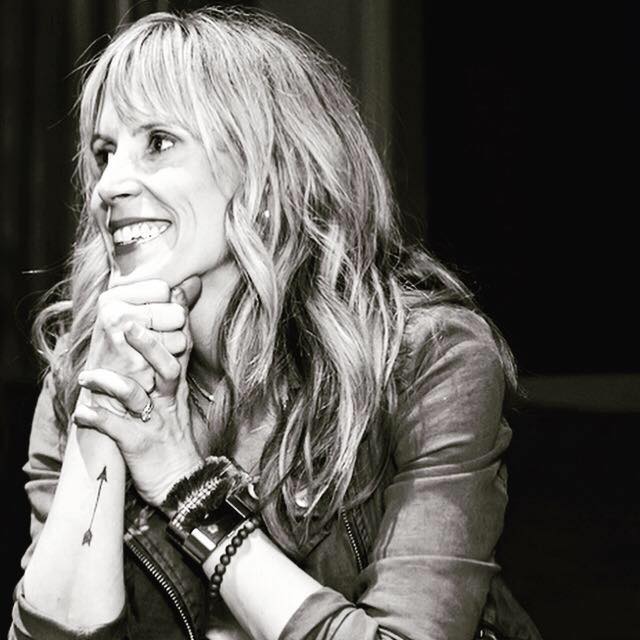At the age of 30 with a successful career in marketing, I found myself at a life roadblock. I had done everything perfectly. I followed the path of opportunity with provided privileges. I did what I was supposed to do. At the end of the day, I felt empty - like what I did really didn't matter. This feeling was a constant reminder after suddenly losing my mother at the age of 24. What did I want to do with my life? How can I make a difference?
A year prior, I shadowed a board certified music therapist in a phase 4 school working with an autistic child. The child walked in, head down, and did not use words to communicate. By the end of the session, his eyes were looking at mine, he was engaged, and energetically said, “Bye!” That moment changed my life. I cashed it all in for two more degrees: music and a masters in music therapy.
Years later doors started opening to work with various populations, from disabilities, to memory care, psych, education, brain injuries, and hospitals. I became a trained in NMT (neurologic music therapy), studying the brain and music therapy interventions based on scientific outcomes and practice. Specifically, I was one of two board certified music therapists to work for a non-profit 501c3 under Maryville University called Kids Rock Cancer. In joining the team, I met Tracie Sandheinrich, MT-BC (pictured below), who helped start Kids Rock Cancer. To say we hit it off is an understatement. With Tracie specializing in hospice, palliative care, and geriatric, she and I both had private practices and shared our woes of the contract-driven side of the music therapy world in our community: How can we take care of music therapists so they don’t burn out? How can we provide consistent and quality care? How can we be the most reliable resource to our community? How can we advocate and let people know music therapy is a thing and very much a clinical practice?
Well, no one else was doing it, so we did. We joined forces to create Music Therapy St. Louis, LLC where we now serve nearly every population. We are both trained in NMT and have post-graduate work under our belt. We are the first company in our area to hire board certified music therapists as employees to co-treat and support clients as a team. We often find ourselves driving around town speaking, advocating and supporting community groups. Music Therapy St. Louis is hoping to have a brick and mortar home base where we can host music therapy and community groups. Furthermore, we are working towards building a scholarship program for families who may not be able to afford services but could significantly benefit from them. With Kids Rock Cancer, Pujols Family Foundation, St. Louis Arc, Lafayette Industries, St. Francis of Assisi, a plethora of Hospice Organizations and more, we find ourselves grateful every day, and continue to strive to offer consistent and quality care on both sides of the river in Missouri and Illinois. All of this would not have possible without big eyes, being big dreamers, and the creation of Kids Rock Cancer.
Kids Rock Cancer is free for families by the generosity of donors and grants. We do therapeutic songwriting, recording, and performance with children diagnosed with cancer or blood disorders, and help the children affected by close relatives suffering from those ailments. In some cases, we provide services bedside to make it as comfortable as possible for the child. Music therapy is a safe playground for children to express, cope, and digest the feelings of diagnosis. It gives them control when they have lost every bit of it, and allows them to play when they have to grow up so quickly.
Our answer was releasing groundbreaking research with Understanding Lyrical Expression: Songwriting Themes in Pediatric Cancer, soon to be published in music therapy’s leading qualitative journal Music Therapy Perspectives. In addition to music therapy, we are looking into child psychology journals to aid child life staff on the findings.
Here is a brief abstract from the research:
The purpose of the study was to identify song themes from the Kids Rock Cancer program through mixed method lyrical inductive microanalysis, quantitative measurement of word and category frequency and deductive analysis. Thirty oncology pediatric patients participated in the study (n=30). Inductive microanalysis revealed eight key themes: emotions, experience (inside the hospital), support, identification, outside the hospital, wants/desires, third party and future. Quantitate analysis of word and category frequency determined “hospital related experiences” as the most frequent category expressed and the word “family” as the most frequent word used in therapeutic songwriting. It is critical to understand common themes developed from the therapeutic songwriting process. If therapists better understand the content and potential of expression, they can improve services and, as a result, enhance therapeutic outcomes.
What is the benefit to this research?
There is a need for more research on therapeutic songwriting in this population. First, music therapy promotes active engagement, encouraging independence through choice making initiation of ideas and problem solving (Aldridge, 1993; Barrickman, 1989; Froehlich, 1996; Magill, Coyle, Handzo & Loscalzo, 1997; McDonnell, 1984; Robb, 2003, 2000). In addition to engagement, songwriting maintains “open communication and hope, which have been identified as aspects of good coping in children diagnosed with cancer” (Artinian, 1976; Cordobes, 1997; Froehilch, 1984; McConville et al., 1990; O’Callaghan 1996, 1997; Robb, 2003, 1996; Wiley & House, 1988). Furthermore, “it can provide insight about how the child is adjusting to the illness or coping with the treatment, and provide opportunities to acknowledge, support, and explore feelings regarding hospitalization” (Kennelly J., 2001). Moreover, music therapy can be used to address a variety of complexities experienced by children and families during hospitalization and treatment of cancer and blood diseases. These goals include, but are not limited to, pain reduction and tolerance, pain control, distraction, relaxation, expression, positive environmental stimulus, normalization, play and support (Davis, W., Gfeller, K., Thaut, M., 2008). Of all the benefits music therapy brings, pain is important with this population because recent findings state that pain is most common and prevalent for pediatric inpatients (Cotton, et al, 2014, p. 98). In addition to pain, decreasing anxiety is another reported benefit of music therapy (Wheeler, B., 2015, p. 108). According to O’Callaghan, C., Baron, A., Barry, P., & Dun, B. (2011), a substantive grounded theory emerged when examining music relevance for pediatric cancer patients. Unfavorable cancer experiences were relieved with the use of music. Furthermore, music promoted pediatric resilience and development. In addition, music therapy would frequently ease distress. (p. 779). Qualitative research suggests that “any fragment of joy and beauty that can be shared is treasured” when using music therapy with children diagnosed with a potentially terminal illness (Lindenfelser et al, 2008, p. 343). O’Callaghan reinforces this idea when examining oncology parent inpatients to their children. The research “indicated that song writing can enable important yet difficult communication at this time” (O’Callaghan, C., Grocke, D., 2009, p. 321).
Therefore, these evidence-based benefits to patients along with the demand increase of therapeutic services, increased use of therapeutic songwriting and lack of research focusing on lyrical understanding in pediatric oncology determine a critical need for this research to ultimately enhance quality of therapeutic services. As therapeutic songwriting increases in popularity among music therapy interventions so does the importance of demonstrating program outcome and success. According to Jones, “additional research on the clinical efficacy of original songs and therapist’s compositional processes is needed to identify best practices models for strategic songwriting” (Jones, J. D., 2006, p. 94). However, the only way to understand therapy efficacy to is understand the lyrical expression first. Additional knowledge will help inform educators, music therapists, administrators and hospitals how to grow and maximize benefits to patients. The purpose of this study is to identify common lyrical themes of the retrospective and released songs written in the Kids Rock Cancer program. If therapists better understand the content and potential of emotional expression, they can improve and enhance therapeutic services.
So much has happened in 10 years; however, dreamers are dreamers and doers are doers. It wasn’t an easy road but worth the reward. During that time, I had to seek out my support system. Surprisingly, not everyone in my life was understanding of this life choice. For me, it was the best choice I could have made. I had to work hard to digest and accept those feelings, and be okay with the idea that people in my life were disapproving of my decision to leave my opportunistic and safe path. I created my own. I live everyday with a Mark Twain quote, “Keep away from people who belittle your ambitions. Small people always do that, but the really great make you feel that you, too, can become great.” You never know where your dreams may take you.
#MusicTherapy #MusicTherapySTL #KidsRockCancer #MusicTherapists #Musicians #MusicEducators #AMTA #MusicTherapies #therapeuticsongwriting #mtstl #songwriting #grouptherapy




 RSS Feed
RSS Feed